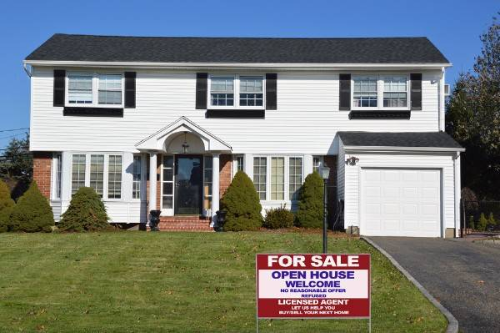Resolving property disputes in Pennsylvania can be a complicated and time-consuming process, but there are several steps you can take as a homeowner to protect your rights and reach a resolution. Here are some tips to help you navigate the process:
- Understand the nature of the dispute: The first step is to identify the nature of the dispute. Property disputes can arise over a wide range of issues, such as boundary lines, easements, encroachments, zoning
 restrictions, and more. Once you have a clear understanding of the problem, you can take appropriate action.
restrictions, and more. Once you have a clear understanding of the problem, you can take appropriate action. - Review your property deed: Your property deed is an important legal document that outlines the details of your ownership, including boundary lines, easements, and any other restrictions. Reviewing your deed can help you determine your rights and obligations and provide a basis for resolving the dispute.
- Communicate with the other party: If possible, try to communicate with the other party to the dispute. This can help you understand their perspective and work towards a resolution that benefits both parties. You can reach out to them directly or through a mediator.
- Consider mediation: Mediation is a process where a neutral third party helps you and the other party to resolve the dispute. Mediation can be a cost-effective and efficient way to resolve disputes without going to court. Many counties in Pennsylvania offer mediation services, and you can contact your local court to learn more.
- Hire an attorney: If you are unable to resolve the dispute through communication or mediation, you may need to hire an attorney to represent your interests in court. An attorney can help you understand your legal rights, gather evidence, and present your case in court.
- File a lawsuit: If all else fails, you may need to file a lawsuit to resolve the dispute. In Pennsylvania, property disputes are typically handled in the Court of Common Pleas in the county where the property is located. Filing a lawsuit can be a complex and time-consuming process, so it is important to work with an experienced attorney.
- Gather evidence: Whether you decide to go to court or not, it is important to gather as much evidence as possible to support your case. This may include photographs, property surveys, deeds, contracts, and any other relevant documents. You should also keep a record of all communications with the other party.
- Attend court hearings: If you decide to file a lawsuit, you will need to attend court hearings to present your case. It is important to be prepared and to have all necessary documents and evidence ready. Your attorney can help you navigate the court system and represent your interests.
- Consider alternative dispute resolution methods: In addition to mediation, there are other alternative dispute resolution methods that you may want to consider, such as arbitration or a settlement conference. These methods can be faster and less expensive than going to court and can often lead to a satisfactory resolution.
- Be patient: Resolving property disputes can take time, so it is important to be patient and persistent. Keep in mind that the goal is to reach a resolution that is fair and equitable for all parties involved. By staying focused and working with experienced professionals, you can achieve this goal and move on from the dispute.
Gibson & Perkins, PC is a law firm located in Pennsylvania that has extensive experience in resolving property disputes. We can assist in a variety of ways, including:
- Providing legal advice: Our attorneys at Gibson & Perkins, PC can provide legal advice and guidance to help you understand your rights and obligations in a property dispute.
- Negotiating with the other party: Our firm can work directly with the other party to negotiate a settlement that is fair and equitable for all parties involved.
- Representing clients in court: If a dispute cannot be resolved through negotiation, the firm can represent clients in court and advocate for their interests.
- Assisting with alternative dispute resolution: Gibson & Perkins, PC can also assist with alternative dispute resolution methods, such as mediation or arbitration, to help clients reach a resolution without going to court.
- Providing comprehensive legal services: Our firm can provide comprehensive legal services related to property disputes, including reviewing contracts, drafting agreements, conducting title searches, and more.
Gibson & Perkins, PC can provide a range of legal services to assist clients in resolving property disputes in Pennsylvania, and we have a track record of success in achieving favorable outcomes for our clients.
